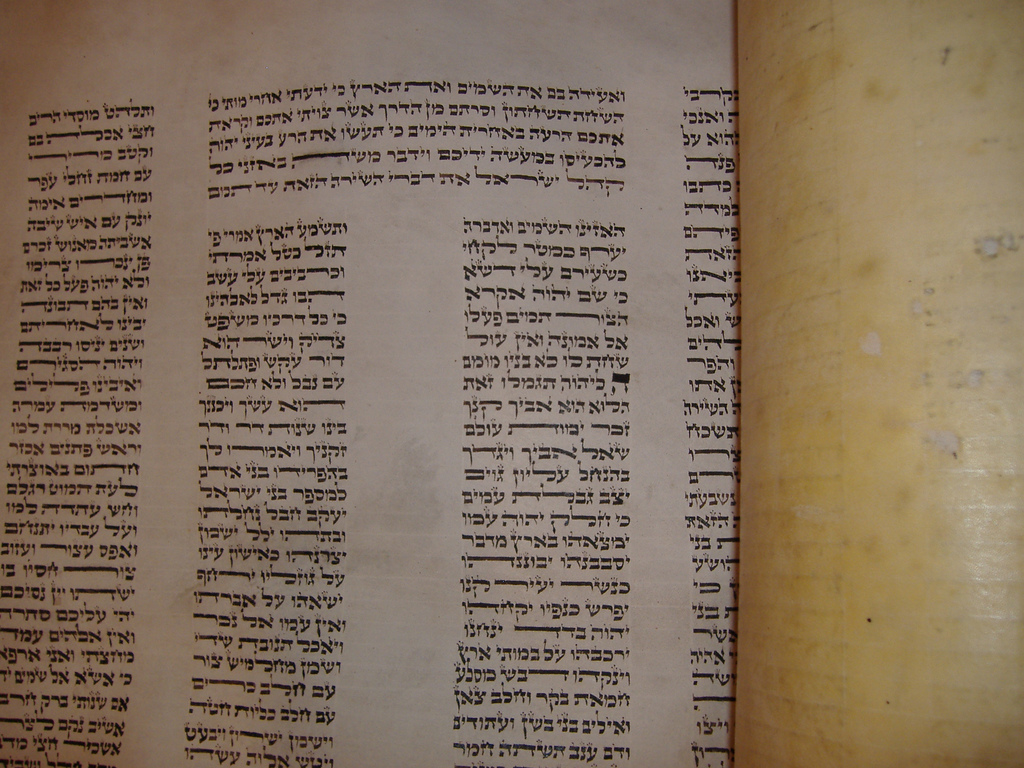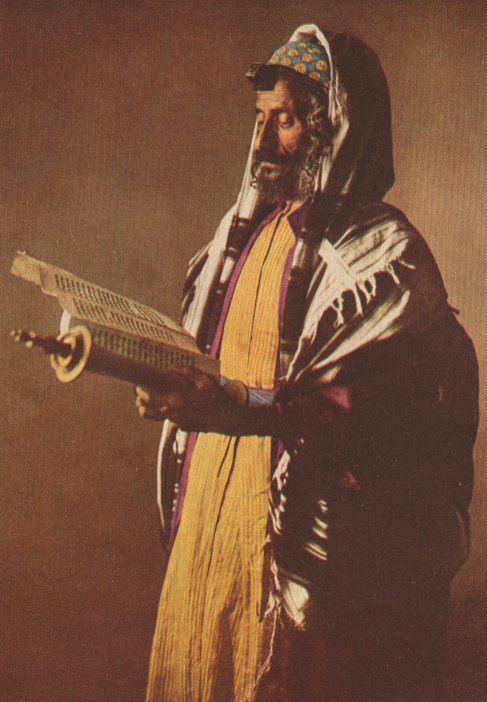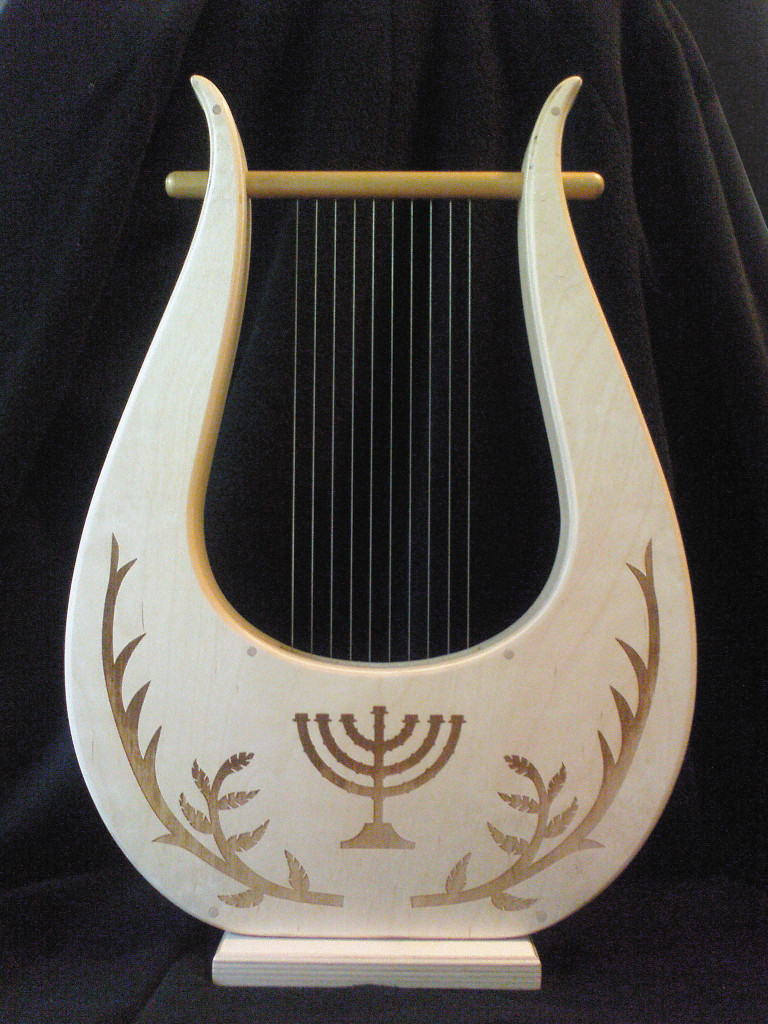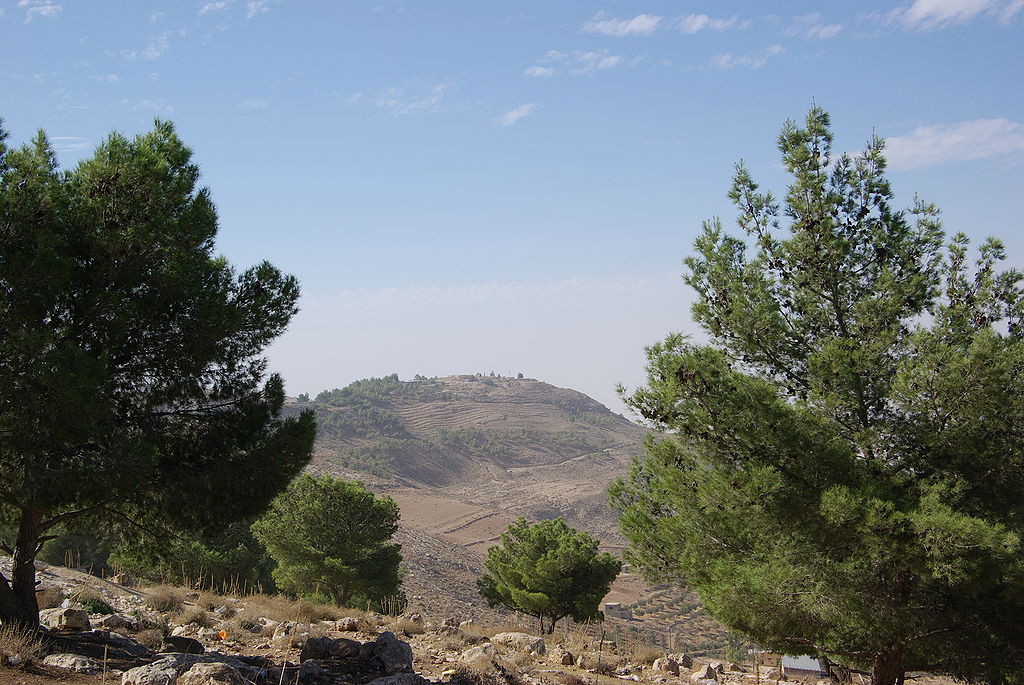האזינו
Parsha Ha’azinu
Debarim (Deuteronomy) 32:1-32:52
“Give ear, O heavens, and let me speak; And hear, O earth, The words of my mouth. – Deuteronomy 32:1
The Torah reading of האזינו Ha’azinu mostly includes the 70-lines of the shirah (song) that is also titled האזינו Ha’azinu. This song is very different from the first one that Mosheh (Mushah) taught his people called “The Song of the Sea”, this melody is rather composed by YaHuWaH himself and not given directly through the inspired words of the Ruwach (wind/spirit) through Mosheh (Mushah). Rather this composition was given by the voice of YaHuWaH to both Mosheh (Mushah) and Yahuwshuwa (Yahushua called “Joshua”). האזינו “Ha’azinu” literally means “your ears”, or literally “the ears of you.” The lyrics of this song declare to ha’shamayim (the space/heaven) and ha’arets (the earth) to be attentive and shema (hear) the debar (word). This is not the first time these two witnesses have been called to take note of the actions of the children of Yisrael (Yashar’al). YaHuWaH likens the words of this song to rain and dew on the tender grass. When Mosheh declares the words of this song to his people he declares that his words are as showers of rain, “For I proclaim the Name of YaHuWaH.” Often times the word proclaim here is translated publish and in a way both are correct representations. Truly Hebrew (Ivri) words do not always translate mechanically as some may claim. One Hebrew (Ivri) word will not always have a single English equivalent. YaHuWaH’s name is the source for all life, the publishing and proclaiming of his Qodesh (Set Apart) Name is the whole purpose of the Torah (instruction/law). YaHuWaH is an El of truth; he is without fault or unrighteousness. All of his ways are true and upright and this is the theme of this prophetic shirah (song).
Shirat Ha’azinu , literally the song of “giving ear” relates, the past present and future of the chosen nation of YaHuWaH. Mosheh was to sing, “a twisted and crooked generation has corrupted itself.” Also announcing to the people that YaHuWaH is their Ab (Father) and that he ransomed them. The song instructs the people of YaHuWaH to remember the days of old, to consider their history, “ask you father and let him show you, your elders and let them say to you.” This is one of many reasons that it is important to have righteous elders and fathers, that they may relate the works of YaHuWaH. Mosheh (Mushah) is to relate through this prophetic melody that YaHuWaH gave to all goyim (nations) an inheritance when he separated the descendants of Adam. Yet YaHuWaH appointed his own portion to be Ya’acob, he chose Ya’acob above all nations. YaHuWaH encompassed Ya’acob and watched over him as the apple of his own eye and as an eagle that spreads out it’s wings to bear it’s young.
YaHuWaH is the one and only redeemer of Yisrael and YaHuWaH will never forget his inheritance. This song is to serve as an everlasting reminder and is sung even to this day especially during the time of Yom Kippur.
YaHuWaH stated in the previous Torah Portion:
“And it shall be, when many evils and distresses come upon them, that this song shall answer before them as a witness. For it is not to be forgotten in the mouths of their seed”…
The Yisraelim (Israelites) of the tribe of Yahuwdah (Judah) have preserved this song in their mouth and have sung it ever since. “For it is not to be forgotten in the mouths of their seed.”
Ha’azinu describes how YaHuWaH had nurtured Yisrael, that he fed them honey from the rock, the fat of lambs, rams and goats, with wine which the song calls the blood (ha’dam) of grapes. However it was when “Yeshurun” (poetic title of Yisrael) became fat from the abundance of favor bestowed upon them from on high that they rebelled against YaHuWaH. Yisrael is required to remind YaHuWaH through the lyrics “They moved Him to jealousy withforeign matters, with abominations they provoked Him. “They slaughtered to demons – not Eloah – mighty ones they did not know who came late.” This is clearly not the type of song one would could sing with pride, it is not some declaration of power or might but of weakness, yet this is one of Yisrael’s national anthems. Yashar’al means upright with El, usually it is transliterated Yisrael and sometimes as we see Yeshurun all of which indicate the idea of being a prince and one who is strait in the path with El. They were called to the highest calling yet went wayward after mighty ones that came late in history, so late that even their fathers had never heard of them. They provoked YaHuWaH with what was foolish and worthless such as idols and images so therefore YaHuWaH declares “but I make them jealous by those who are no people, I provoke them with a foolish nation.” This is a future declaration of what has been called “the times of the gentiles”, YaHuWaH will use the favor he shows to the foolish gentile nations to cause Yisrael to be provoke to jealousy. In the years ahead, Yisrael would turn against YaHuWaH and be banished from the land, until this day the ten northern tribes have never returned from the Assyrian captivity, while the southern tribes of Yahuwdah went into exile to the Babylonians have returned once already, were exiled by the Romans later and now at the end of the age are making a return yet again. The nations would see this weakness and think that YaHuWaH has completely forsaken his people and chosen them instead.
Ha’azinu continues to reiterate the idea of the curses that will come upon the people for their wayward rebellion. YaHuWaH says in this song that he would have destroyed them and made their remembrance cease but he was concerned that the foolish nations would not understand and think that they had done all this by their own power. However YaHuWaH is compassionate and he will forgive his people and he will avenge their blood at the hands of the foolish nations who came against them.
Debarim (Deuteronomy)32:43 “O nations, acclaim His people! For He avenges the blood of His servants, And returns vengeance to His adversaries, And shall pardon His land, His people.”
After YaHuWaH relates the seventy lines of the Ha’azinu shirah Mosheh (Mushah) and Yahuwshuwa (Joshua) return to the people. Then Mosheh (Mushah) declares the words of this song and he instructs his people to heed the warning he is giving them to guard the words of the Torah. He states that this word of the Torah is your life and will prolong your days. At the end of his speech on the same day YaHuWaH instructs Mosheh (Mushah) to go up the mountain of the Abarim, which is Mount Nebo in the land of Mo’ab that he may die upon the mountain. This is likened to when Aharon went up the Mountain Hor and passed to be gathered with his people. Due to the sin of Mosheh at the waters of Meribah Qadesh, YaHuWaH will not allow him to enter the Promised Land although from the mountain he is to ascend he will be able to see the land showing YaHuWaH’s compassion.
We must understand the relevance of this prophetic song and the details of the conquest of the Promised Land that we may understand the work of our Master YaHuWaH and his anointed Sovereign Yahuwshuwa the Messiah. At the end of the age when YaHuWaH sees that the power of his people has diminished and there is none left then he comfort his people yet again, who will still be singing “Ha’azinu.” In that day he will judge and fight the nations who came against his inheritance.




